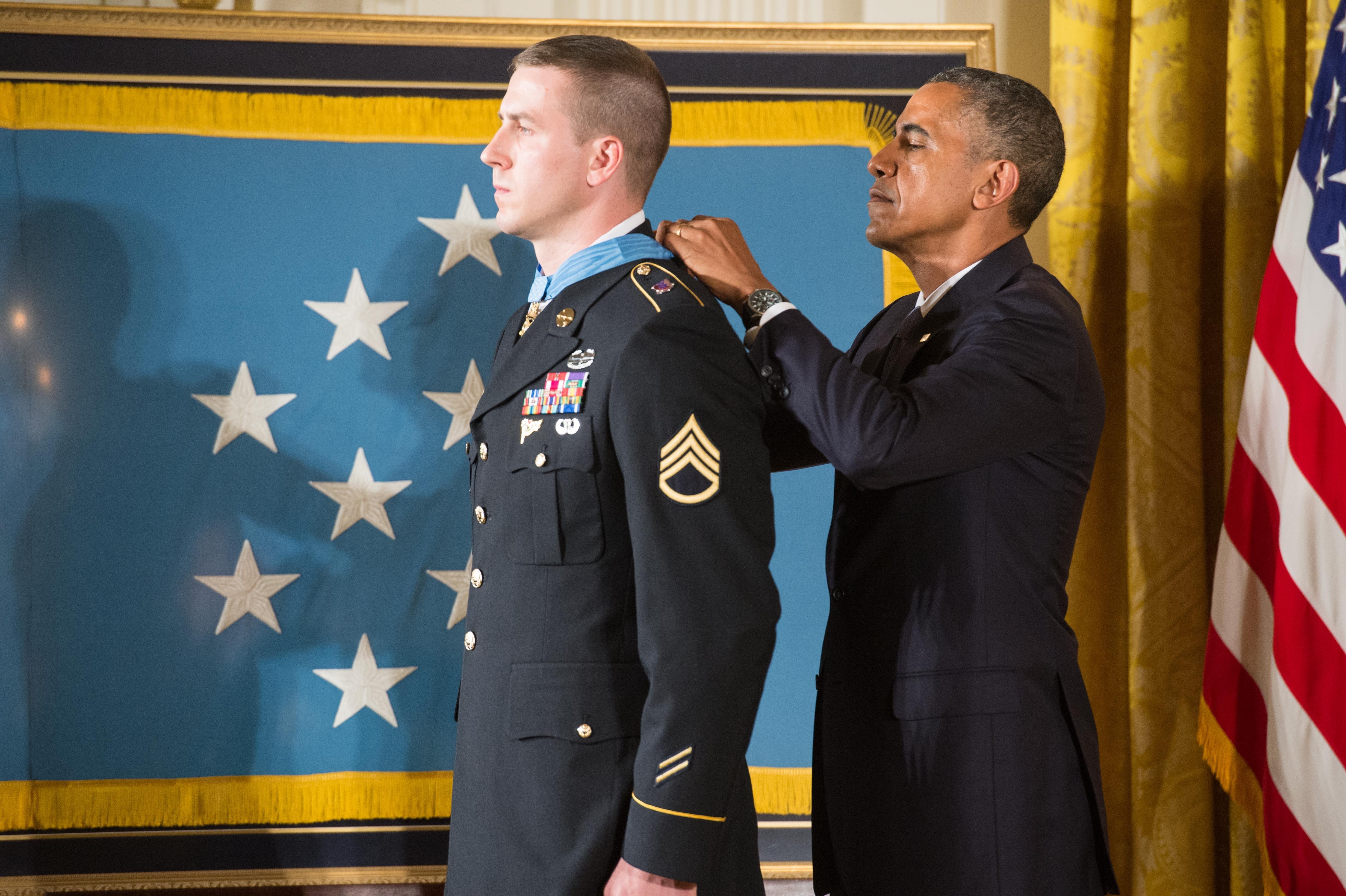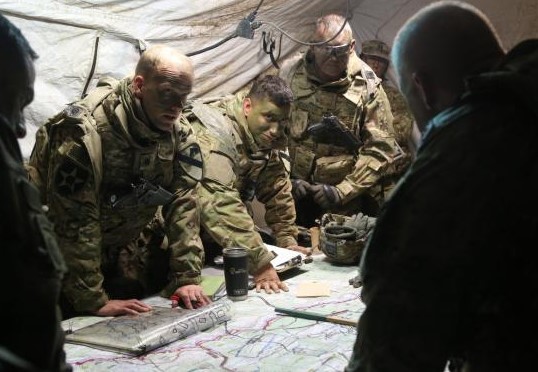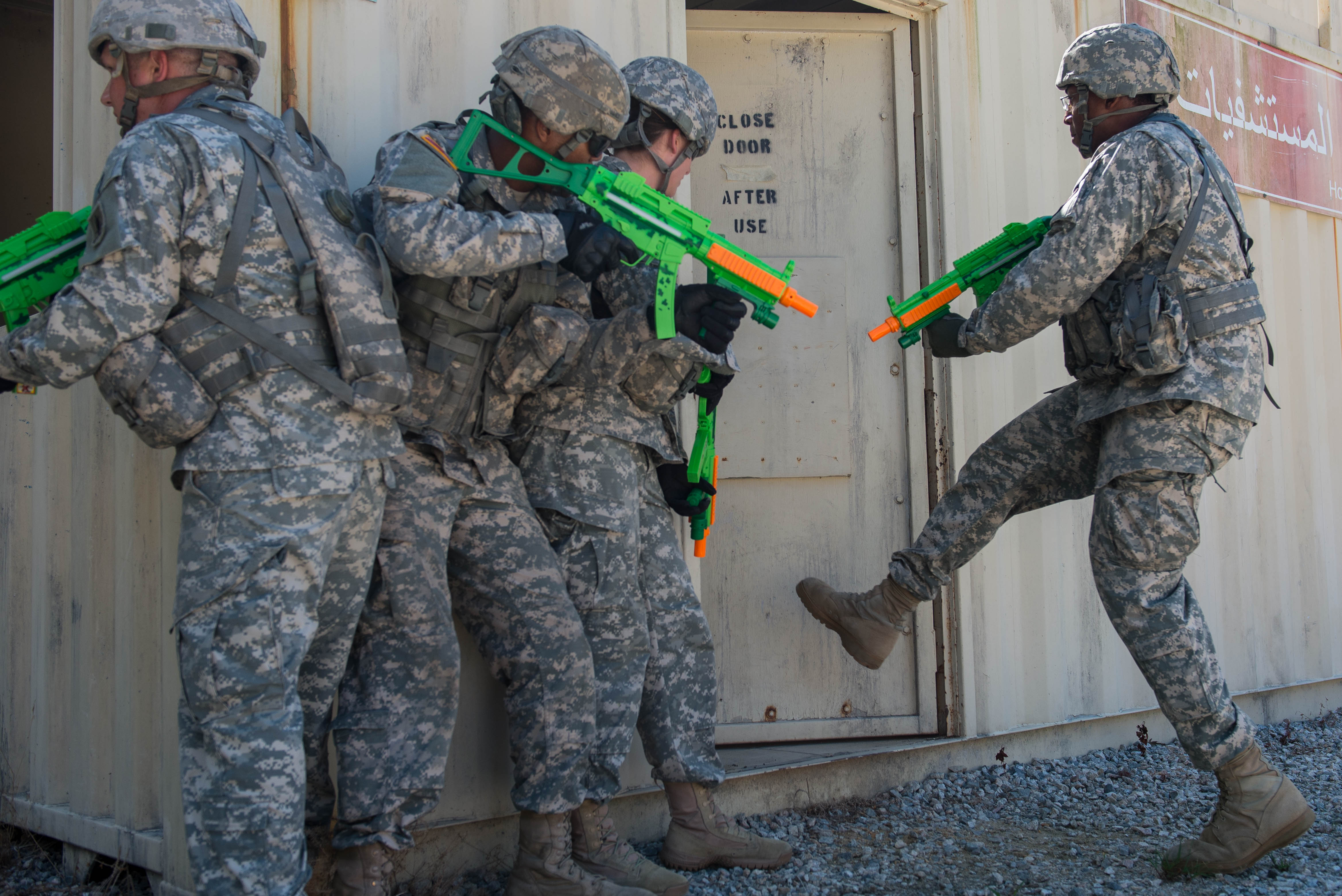-
cplenge wrote a new post, Traits of Successful Leaders — Mission Accomplishment 6 years, 2 months ago
By: Chad Plenge Many times when we talk about leadership characteristics, we think of things like integrity, character, taking care of others, decision making, etc. While those are all incredibly im […]
-
cplenge wrote a new post, Traits of Successful Leaders – Character 6 years, 3 months ago
By: Chad Plenge “It is not our abilities that show us who we truly are, it is our choices.” Who was the wise old man that said that? It is none other than Lord Dumbledore from the Harry Potter s […]
-
Chad, I agree completely. My main issue with the way we talk about character in the military – and frequently in society – is it’s treatment as some immutable, inherent characteristic. A person has good or bad character – then actions manifestly describe that character.
I think in many ways it’s the opposite – the actions we take shift and define our character.
A WWII study found a unit in heavy combat improved it’s performance up to 45 days, then performance began to deteriorate and become worse than a green unit after 90 days. Performance involved tactical and operational objectives – but also initiative, courage, and not withdrawing or cutting off an attack prematurely. I think it’s a good indicator aspects of individual and unit ‘character’ can be hugely impacted by the conditions under which they serve.
I think an area where it manifests is the Army’s struggle with command responses to sexual assault and sexual harassment. A frequent refrain, especially in years past has been ‘but, he (it’s usually a he) was such a good Soldier and had such strong character.’ Where the commanders lying? Was their judgement so badly flawed they were a poor judge of character? Or, as I would contend could someone show positive and negative character traits in different aspects of their professional and personal lives? Could we set the conditions by the way we organize, build a professional culture, and instill discipline where we optimize for bad character outcomes in some areas?
I think character is about choices but, like all important choices, you don’t make them just one time. You make them over, and over again. I think it’s dangerous for us to assume some level of leader passes through a gate to be accrued the assumption they’re always making the right choice. Similarly I think very few choices have only positive or only negative consequences – at least for the individual. I think it gets to the heart of toxic leadership and how subordinates can suffer under a toxic leader who continues to get promoted by superiors – it’s the same ‘character’, just looked at from different angles.
-
-
cplenge wrote a new post, Leadership in the Tactical Operations Center 6 years, 3 months ago
By: Rose Bernheim We’re at the brigade tactical operations center (TOC) during a rotation at the Joint Multinational Readiness Center. It is day 3 of the battle against the Skolkan Alliance and the brigade is […]
-
cplenge commented on the post, The Leadership Question You Aren't Answering 6 years, 5 months ago
I like how you tied in Mission Command. Too often it seems like people preach it, but never actually put it into practice. Maybe that’s because it’s hard or because it forces the leader to delegate, which can be uncomfortable. However, getting subordinates to understand the “why” is a great way to empower them to act. This is how great…[Read more]
-
cplenge wrote a new post, The Leadership Question You Aren't Answering 6 years, 5 months ago
Army leadership at the company level is usually about the how, as in “How I accomplish the mission.” We tear through Paragraph Three and focus on Tasks to Subordinate Units and Coordinating Instructions, […]
-
Excellent post. I often argue that the more we adopt the “Starting with WHY” model the quicker we will be able to adopt the true meaning of Mission Command. You bring up excellent points about how important it is to define the WHY as a leader but I would also add there is an equal importance to allow soldiers to be more active in defining their WHY’s. This combination can help us achieve greater results as a force. Thank you for kicking of the year with something that is so powerful.
-
I like how you tied in Mission Command. Too often it seems like people preach it, but never actually put it into practice. Maybe that’s because it’s hard or because it forces the leader to delegate, which can be uncomfortable. However, getting subordinates to understand the “why” is a great way to empower them to act. This is how great organizations build leaders who are able to excel in ambiguous and complex environments.
-
-
Many Soldiers have grown accustomed to the more directed task “how” and “what” style of leadership. What tips do you have for JOs to help our NCOs and Soldiers become more comfortable with operating within the “why”? How can we implement leading with the “why” in our day to day activities?
-
-
cplenge commented on the post, 10 Hard Lessons Learned during Command of a Field Artillery Forward Support Company 6 years, 6 months ago
Excellent advice! It sounds like you made a positive impact on the organization. What was your experience like being the first female commander of the unit?
-
cplenge commented on the post, 10 Hard Lessons Learned during Command of a Field Artillery Forward Support Company 6 years, 6 months ago
That’s awesome to hear! Do you have any lessons learned along the way that would be worth sharing?
-
cplenge wrote a new post, Copilot Leadership: What We Can Learn from the Airline Industry 6 years, 6 months ago
What if I told you that context and culture can kill people? For both Korean Air flight 801 and Air Florida flight 90, differing perceptions of the environment and a lack of cultural awareness led to the deaths […]
-
cplenge replied to the topic What officers expect from LTs in the forum Junior Officer 6 years, 6 months ago
It’s sad, but very true. Showing up and actually caring can set yourself apart from others quickly. Many people say they care, but their actions don’t always match that.
-
cplenge replied to the topic What officers expect from LTs in the forum Junior Officer 6 years, 6 months ago
I like those!
-
cplenge wrote a new post, Drive by Leadership 6 years, 7 months ago
It was about 4:30 am and my Soldiers were showing up for their law enforcement shift. I was going to work in place of one of them, giving a lucky Soldier an unexpected day off. After pairing up with my […]
-
Chad, I think this is a great technique and one I saw put into place very effectively by GEN Townsend when he took command of the 10th MTN DIV (LI) in 2013.
He chaired his first major meeting on a Monday or Tuesday with most of the commander’s on Ft. Drum after he arriving the previous Friday. I think most of the audience (myself included) expected him to talk general philosophy but mostly accept what he was told unchallenged – after all he had just arrived and didn’t have a separate feed for information yet. Or, that’s what we thought.
It turned out he challenged commanders on a number of topics – and had much more up-to-date information. GEN Townsend (MG at the time) when driving on post if he saw someone walking he’d pull over, pick them up, and give them a ride wherever they were going. He did it anytime he was driving but especially on the weekends. Invariably the people he would pick up were Soldiers or family members. He’d asking them about their unit, where they were going, why they were walking, what life was like, etc.
So, in that first meeting when commanders were telling him how they had adequate bus lines, chow hall hours, and sponsorship programs MG Townsend was in a position to look critically at what he was being fed. More often than not commanders were the ones scrambling to gain an adequate understanding to answer their boss. It sent a powerful message to leaders: 1. know your business, because I’m looking 2. Don’t give me answers you’re not sure on or are making up – my trust is earned and lost and 3. Every Soldier matters, if you’re not out for them you’re not leading the way I expect.
-
-
cplenge started the topic Owning Development, what is realistic? in the forum Junior Officer 6 years, 7 months ago
This opinion piece has been making its way around social media again. I’m curious to get your thoughts. I fully believe that leaders have to take ownership for their own development and that they have to learn how to develop themselves in addition to those more formal programs. However, in many cases that translates to leaders taking time ou…[Read more]
-
cplenge replied to the topic Writing Tools in the forum Junior Officer 6 years, 7 months ago
@Vanezzaospina By “pretty bad conditions” do you mean in terms of basic writing skills (spelling, grammar, etc), just not being able to justify their position (i.e. not being able to make a logical argument), or not following some of those more military specific things (military format, using the right military words, etc)?
-
cplenge started the topic Test 3 in the forum Junior Officer 6 years, 8 months ago
Test test test
-
cplenge replied to the topic Tactical Operations Center (TOC) Resource Product in the forum Junior Officer 6 years, 8 months ago
JB, the products are not showing as attached. Would you be able to try attaching them again?
Chad
-
cplenge started the topic What officers expect from LTs in the forum Junior Officer 6 years, 8 months ago
Someone shared this with me. It is a document that one unit compiled with advice and expectations for cadets/new LTs. The great part about this is that it contains opinions from numerous ranks and spans multiple branches. Feel free to read it, save it for later, or delete it.
-
cplenge replied to the topic Leadership and Sexual Assaults in the forum Junior Officer 6 years, 9 months ago
I absolutely agree that you have to have a plan in place before things like this happen. This was something I made sure to go over and rehearse frequently when I was in command. Unfortunately, I had to put these procedures into action during my command. Planning did not prepare me for everything, but it gave me the foundation necessary to…[Read more]
-
cplenge started the topic Leadership and Sexual Assaults in the forum Junior Officer 6 years, 9 months ago
How can leaders handle sexual assault reports with either a victim, suspect, or both within their organization? What lessons can we take away from this story?
From our Facebook page:
As a leader, your actions can have a very positive or a very negative impact on your subordinates. You also get to choose how you deal with events in your…[Read more]
-
cplenge changed their profile picture 6 years, 9 months ago
-
cplenge replied to the topic Senior Rater Counseling as a Commander in the forum Junior Officer 6 years, 9 months ago
I don’t recall ever having a “formal” senior rater counseling and definitely not one on paper. I have had informal discussions with some of my senior raters, but those are typically minimal. One challenge is that most of my senior raters have been on different installations, sometimes on a different continent. That made it challenging to co…[Read more]
- Load More






